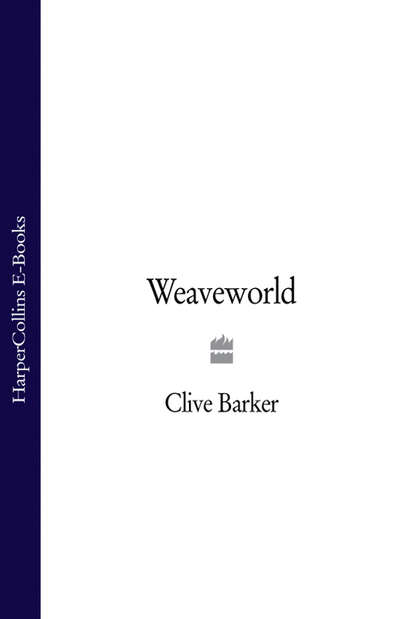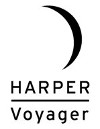
Полная версия:
Weaveworld

CLIVE BARKER

WEAVEWORLD


Harper Voyager HarperCollinsPublishers Ltd. 1 London Bridge Street London SE1 9GF
www.harpercollins.co.uk
First published in Great Britain by HarperCollinsPublishers 1987
Copyright © Clive Barker 1987
Introduction copyright © Clive Barker 1996
Drawings by Tim White
The publishers would like to acknowledge permission to quote from the following material.
Lines from The Tryst by Walter de la Mare published by permission of the Literary Trustees of Walter de la Mare and the Society of Authors as their representatives. Lines from Stopping by Woods on a Snowy Evening from THE POETRY OF ROBERT FROST edited by Edward Connery Lathem by permission of the Estate of Robert Frost and Jonathan Cape Ltd. Lines from The Two from THE COLLECTED POEMS OF W.H. AUDEN reprinted by permission of Faber and Faber Ltd.
The Author asserts the moral right to be identified as the author of this work
A catalogue record for this book is available from the British Library
All rights reserved under International and Pan-American Copyright Conventions. By payment of the required fees, you have been granted the non-exclusive, non-transferable right to access and read the text of this ebook on-screen. No part of this text may be reproduced, transmitted, down-loaded, decompiled, reverse engineered, or stored in or introduced into any information storage and retrieval system, in any form or by any means, whether electronic or mechanical, now known or hereinafter invented, without the express written permission of HarperCollins ebooks
HarperCollinsPublishers has made every reasonable effort to ensure that any picture content and written content in this ebook has been included or removed in accordance with the contractual and technological constraints in operation at the time of publication
Source ISBN: 9780006483007
Ebook Edition © AUGUST 2010 ISBN: 9780007382965
Version: 2018-11-09
Dedication
To D.J.D
Epigraph
‘… the spirit has its homeland, which is the realm of the meaning of things.’
Saint Exupéry The Wisdom of the Sands
CONTENTS

Cover
Title Page
Copyright
Dedication
Epigraph
INTRODUCTION
BOOK ONE: IN THE KINGDOM OF THE CUCKOO
Part One: Wild Blue Yonder
I HOMING II THE PURSUERS III WHO MOVED THE GROUND? IV CONTACT V BEFORE THE DARK VI MAD MOONEYPart Two: Births, Deaths and Marriages
I THE SUIT OF LIGHTS II THE SKIN OF THE TEETH III SELLING HEAVEN IV NUPTIALS V IN THE ARMS OF MAMA PUS VI SICK SOULS VII THE TALL-BOY VIII FOLLOWING THE THREAD IX FINDERS KEEPERS X THE MENSTRUUMPart Three: The Exiles
I THE RIVER II WAKING IN THE DARK III WHAT SHE TOLD IV NIGHT TERRORS V FROM THE MOUTHS OF BABES VI EVENTS IN A HIGH WIND VII THE AFTERMATH VIII NECESSARY EVILS IX ON THE MIGHT OF PRINCES X HUMANKINDNESS XI THREE VIGNETTESPart Four: What Price Wonderland?
I TO SELL IS TO OWN II TELL ME NO LIES III SO NEAR. SO FAR IV BREAKING THE LAW V THRESHOLDBOOK TWO: THE FUGUE
Part Five: Revels
I CAL, AMONGST MIRACLES II AT THE LAKE, AND LATER III DELUSIONS IV ALLEGIANCES V THE ORCHARD OF LEMUEL LO VI CAPRA’S HOUSE VII SHADWELL ON HIGH VIII THE VIRGIN BLOODED IX NEVER, AND AGAIN X THE SUMMONS XI AT THE GAZEBO XII A VANISHING BREED XIII A PROPOSALPart Six: Back Among the Blind Men
I TIME’S GONE BY II DESPAIR III FORGETFULNESS IV THE NOMADS V OUR LADY OF THE BONES VI THE BRITTLE MACHINE VII TALES OF SPOOK CITYPart Seven: The Demagogue
I THE MESSENGER II SEEING THE LIGHT III CHARISMA IV AS GOOD MEN GO V THE HOURS PASS VI HELLO, STRANGER VII LOST CAUSES VIII NEW EYES FOR OLD IX A SECRET PLACE X FATALITIES XI CAL, TRAVELLING NORTH XII RESOLUTIONPart Eight: The Return
I STRATEGY II THE BURIAL PARTY III THE HORSE UNHARNESSED IV THE ROPE-DANCERS V NONESUCH VI THE FLESH IS WEAK VII AN OPEN BOOK VIII THE ESSENTIAL DRAGON IX THE FIRE X UNEARTHLY DELIGHTS XI A WITNESS XII ONE FELL SWOOP XIII A FLEETING GLIMPSE XIV THE NARROW BRIGHTPart Nine: Into the Gyre
I TRESPASSERS II THE TEMPLE III THE MIRACLE OF THE LOOM IV SHADWELL V A FRAGILE PEACEBOOK THREE: OUT OF THE EMPTY QUARTER
Part Ten: The Search for the Scourge
I NO REST FOR THE WICKED II OBLIVION III THE WALL IV URIELPart Eleven: The Dream Season
I PORTRAIT OF THE HERO AS A YOUNG LUNATIC II REPRESENTATIONS III NO LULLABIES IV THE SHRINE OF THE MORTALITIES V THE NAKED FLAME VI DEATH COMES HOMEPart Twelve: Stalking Paradise
I A CHAPTER OF ACCIDENTS II DUST AND ASHES III THE SECRET ISLE IV PAST HOPEPart Thirteen: Magic Night
I BLIZZARD II SHELTER FROM THE STORM III ON THE HILL IV SYMMETRY V THE SLEEPWALKER VI RAPTUREKeep Reading
About the Author
Also by the Author
About the Publisher
INTRODUCTION

I remember a window in a farmhouse in North Wales which had a sill of white-washed stone so deep I could sit sideways in it at the age of six, hugging my knees to my chin. From that spying place I had a view of the orchard of apple trees behind the house. The orchard seemed large to me at the time, though in retrospect it probably contained less than twenty trees. In the heat of the afternoon the farmyard cats, having exerted themselves mousing, went there to doze, and I went to hunt through the unkempt grass for eggs laid by nomadic hens. Beyond the orchard was a low wall with an ancient mossy stile. And beyond the wall an expanse of rolling meadow, grazed by sheep, with the sea a misty blue prospect.
I have little way of knowing how accurate these memories are; almost forty years have passed since I was small enough to sit in that window niche. The photographs my parents took of those distant summers are still pasted in the musty pages of their album, but they are tiny, black and white and often blurred. There are, it’s true, a couple of pictures of the cats, dozing. But none of the orchard, or the wall, or the meadow. And none of the window where I sat.
Perhaps it doesn’t really matter how accurate my memories are; all that matters is how powerfully they move me. I still conjure that place in my dreams, and when I wake I have the details clear in my head. The smell of the night-lights my mother set on the dresser in my bedroom, the dapple beneath the trees, the warmth and weight of an egg, found in the grass and carried into the kitchen like unearthed treasure. The dreams are all the evidence I need. I was there once, blissfully happy. And though I cannot tell you how, I believe I will be there again.
The farmhouse has long since disappeared; the cats are dead, the orchard uprooted. But I will be there again.
If you are already familiar with the book in your hand, you know the relevance of this sliver of autobiography. Weaveworld is a meditation on memory. Yes, it also tells about magic and demagoguery and angelic judgments, but the central drama of the tale is the way the characters remember – or fail to remember – the glimpse they’ve had of paradise. This, for instance, of Cal Mooney, our hero:
‘It was only when, in the middle of a dreamy day, something reminded him – a scent, a shout – that he had been in another place, and breathed its air and met its creatures, it was only then that he realized how tentative his recall was …
… The glories of the Fugue were becoming mere words, the reality of which he could no longer conjure. When he thought of an orchard it was less and less that extraordinary place he’d slept in (slept, and dreamt that his life he was now living was the dream) and more a commonplace stand of apple trees …
… Surely dying was like this, he thought; losing things dear and unable to prevent their passing.’
The novel is not primarily about the escape into Eden. It’s about how the knowledge of Eden slips from us, and the means we devise to hold on to that knowledge. This is, I think, a universal experience, which may go some way to explaining why the book continues to find readers. I recently finished a six-week publicity tour for a new novel, and at book-signings across the country found readers bringing me battered but much-beloved copies of Weaveworld to be inscribed; several times I heard people say the book had helped them through dark times in their personal lives.
There is nothing more gratifying to this author than to sign and personalize a book which has seen some action: passed between friends, dropped in the bath, coffee-stained and sun-yellowed. I have in my library copies of certain works – Melville, Poe, Blake – that I’ve treasured over the years, all much the worse for wear. I know how close you can get to a book whose stains and creases are part of your shared history. And what more perfect marriage of form and content, than that a novel about memory, like Weaveworld. should be valued because of the events that have marked it?
The book was published in 1987, the year in which the first Hellraiser film was released, but it represented a considerable departure from the transgressive horror fiction with which I had become identified. There were plenty of critics ready to snipe at the change of direction, opining that my imagination was too dark for the genre I was attempting to infiltrate, and I was better off staying on the horror shelves. But the response from readers, including many who were devoted to the extremes of my earlier work, was overwhelmingly positive. The book sold solidly from the outset, and has continued to do so, in several languages, ever since. It has sparked off creative work in other media from readers who wanted to explore the story for themselves: paintings, poems, musical compositions; even an opera, planned for production in Paris. I have come to believe that the darkness I imported into the work, far from proving problematic, is very much to the book’s purpose. Yes, there are raptures in the novel, and glorious deliriums. But the Fugue – the magic haven of the book – is threatened with total destruction, and the powers that overshadow it are not tuppenny coloured terrors. They are the obscenities of human cruelty and human despair.

Tales of Paradise Lost are central to our culture, of course; we are all exiles from some place of bliss.
What is that place? A memory of a pre-conscious state of perfect contentment, where we believe ourselves whole because we have not yet comprehended the fact of our physical separation from our mothers? Or a religious conviction, too deep in our cells to be subjected to the rigours of intellectual enquiry, that knows our connection to the planet, to animal life, to the stars? A faith, is it? Or a glorious certainty?
It isn’t necessary for a storyteller to have answers to the questions they pose, of course; only to be interested enough to ask them. Weaveworld is full of unrequited enquiries. Why does Immacolata’s hatred of the Seerkind burn so intensely? Is the creature in the Empty Quarter an angel or not? And if the garden of sand in which it has kept its psychotic vigil is not the Eden of Genesis, then where did the Seerkind arise from? There are certainly answers to these mysteries to be wrought and written, but they would, I am certain, only beg further questions, which if answered would beg yet more. For all its length and elaboration, the novel does not attempt to fill in every gap in its invented history. Nothing ever begins, its first line announces; there are innumerable stories from which this fragment of narrative springs, and there will be plenty to tell when it’s done. Though I have had requests aplenty for a sequel, I will never write one. The tale isn’t finished; but I’ve told all I can.
That is not to say my attitude to the work does not continue to change. In the past ten years I’ve gone through periods when I was thoroughly out of sorts with the novel, even on occasion irritated that it found such favour with readers when other stories seemed more worthy. And in the troughs of my discomfort, I made what with hindsight seems to be dubious judgments about fantastic fiction as a whole. I have been, I think, altogether disparaging about the ‘escapist’ elements of the genre, emphasizing its powers to address social, moral and even philosophical issues at the expense of celebrating its dreamier virtues. I took this position out of a genuine desire to defend a fictional form I love from accusations of triviality and triteness, but my zeal led me astray. Yes, fantastic fiction can be intricately woven into the texture of our daily lives, addressing important issues in fabulist form. But it also serves to release us for a time from the definitions that confine our daily selves; to unplug us from a world that wounds and disappoints us, allowing us to venture into places of magic and transformation. Though of late my writing has concerned itself more and more with detailing that wounded, disappointing reality, as a reader I have rediscovered the pleasures of unrepentant escapism: the short fiction of Lord Dunsany, early Yeats poems, the paintings of Samuel Palmer and Ernst Fuchs.
The author who wrote Weaveworld has, however, disappeared. I’ve not lost faith with the enchantments of fantasy, but there is a kind of easy sweetness in this book that would not, at least presently, come readily from my pen. We go through seasons perhaps; and Weaveworld was written in a balmier time. Perhaps there’ll be another. But its tender inventions seem very remote from the man writing these words.
Maybe that’s why, when I sat down to work this morning, I thought of that sill in North Wales, and the orchard and the wall and the meadow. They too are remote, yet – like the copy of Weaveworld that sits beside me on the desk – they are here with me still; part of my past, and yet present.



